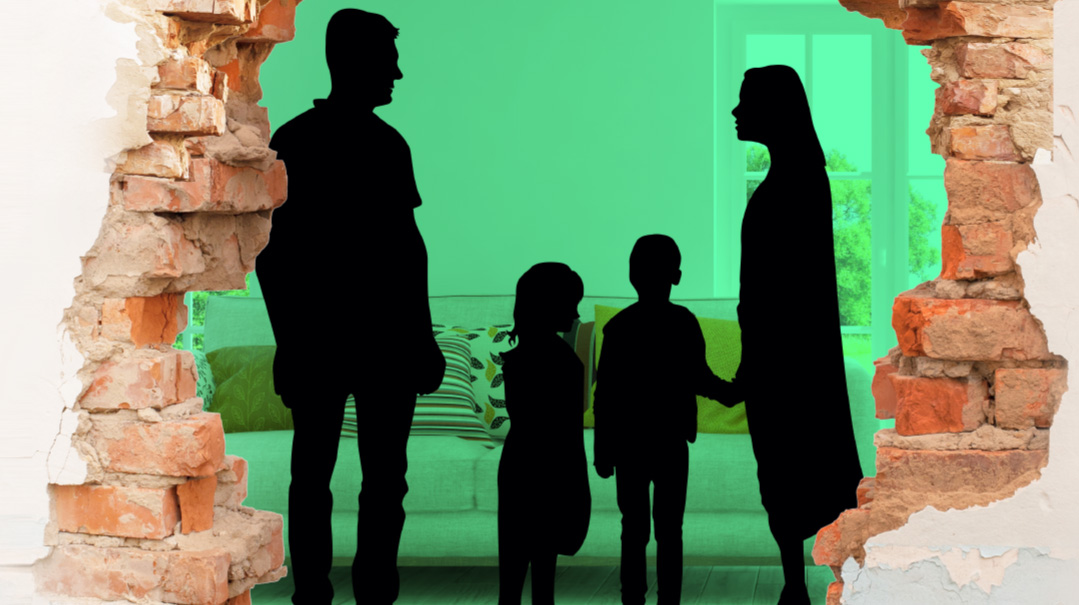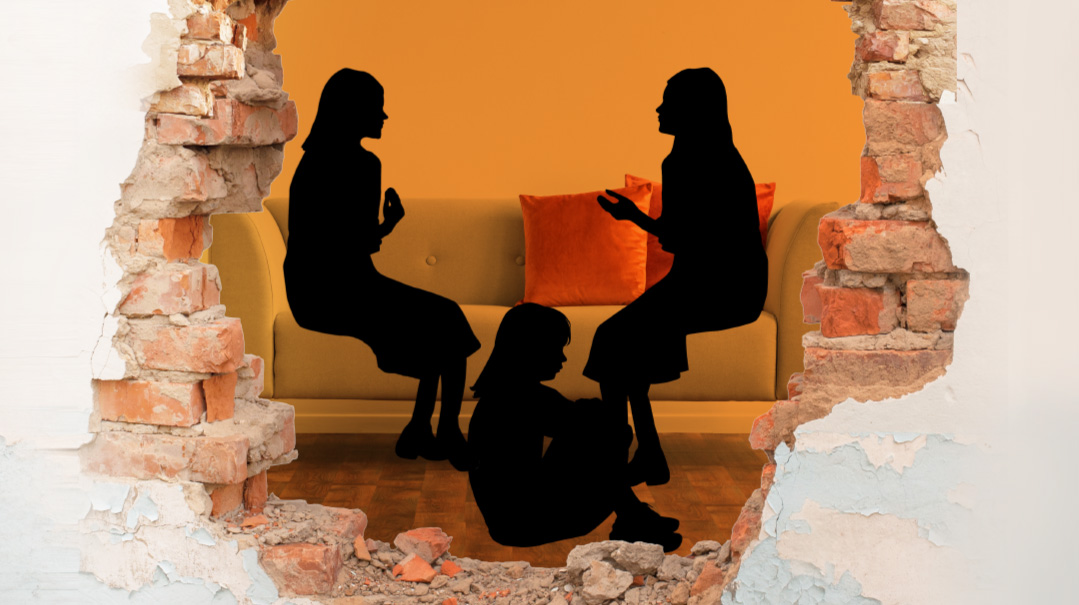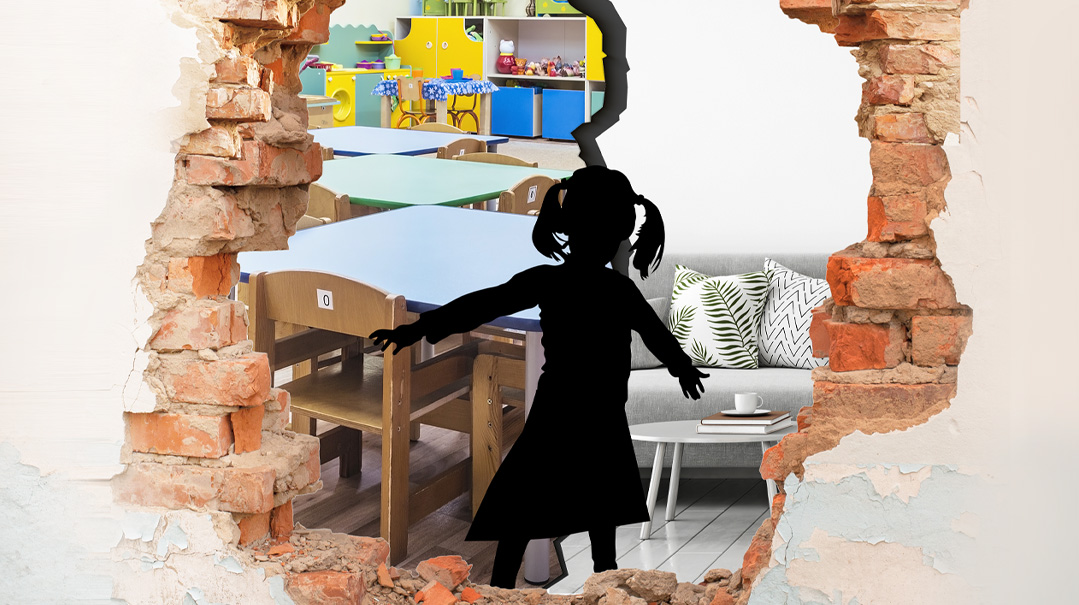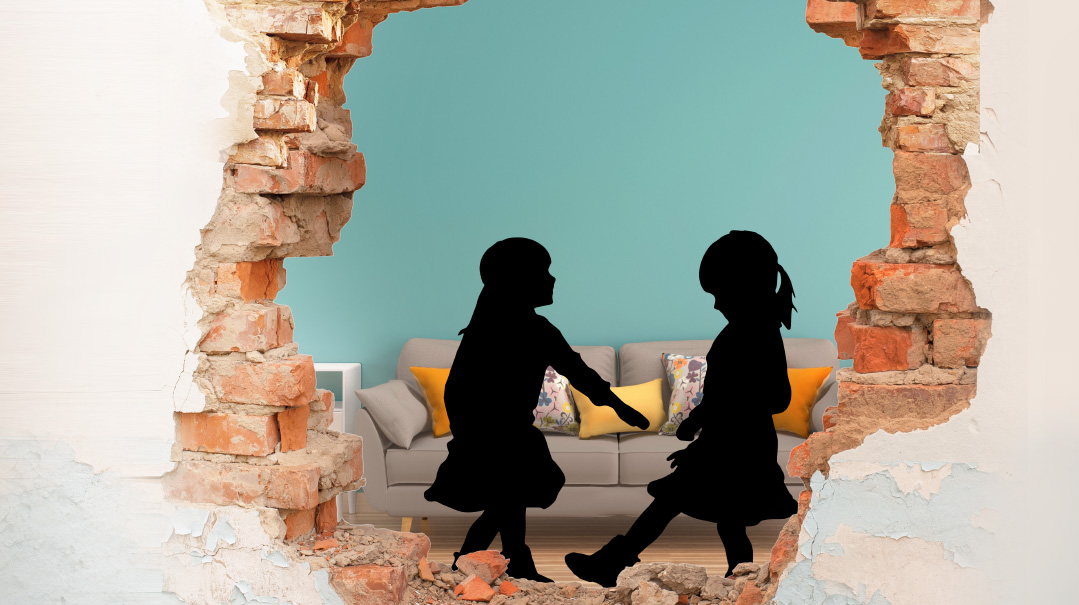“My Daughter’s School Dress Code Isn’t Mine”

“Teenagers are shrewd observers, and they can’t be fooled. It doesn’t matter what you say. What you do matters. Who you are matters”
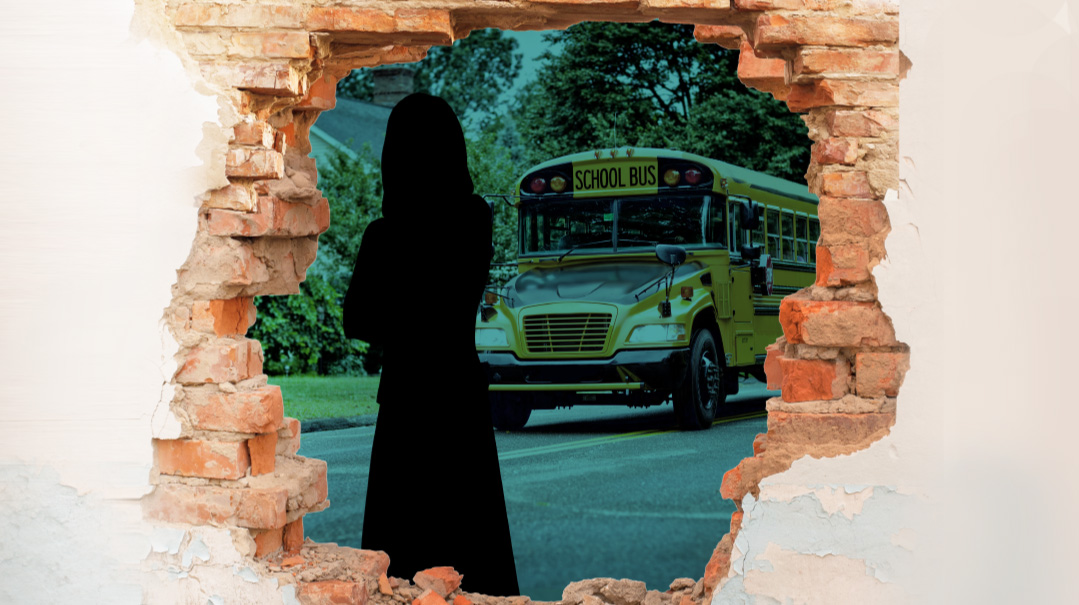
Moderated by Faigy Peritzman
MY
oldest daughter was just accepted to high school for next year. The school where she is going is an excellent one which fits our lifestyle and hashkafos. The only catch is they have an extremely strict dress code, enforcing rules that have less to do with halachah and more to do with sensitivities, peer pressure, and the like. My daughter knows she is expected to follow all these new rules and is totally on board with them. The issue comes up with me. Many of these new rules, like limited cosmetics, no name brands, are definitely not the standards of what I am used to, nor how I plan to continue.
This came up in a conversation with my sister-in-law who also sends to this school. She congratulated me on my daughter’s acceptance and asked me if I was going to find it difficult to stop my weekly manicures. I was surprised and answered that I wasn’t planning on changing my own dressing standards. Obviously, my daughter’s required to keep the school’s standards, even what they expect out of school settings, and she’s fine with that. But why me? I’m not the one signing these rules.
My sister-in-law was appalled at my level of hypocrisy and the mixed messages I’m sending to my daughter. I don’t see it that way. School rules don’t necessitate that the entire family has to undergo changes like that, do they?
Rabbi Shneur Aisenstark
Principal of Bais Yaakov Montreal since 1967.
I’d like to begin by sharing a story that happened to me when I first became principal of Bais Yaakov of Montreal.
At that time, the entire school, elementary through high school, had a few hundred girls. The parental body was shomer Shabbos, but ran the spectrum of various demographics within the Jewish community. I was approached by several board members who were concerned that there was a large group of mothers, who although were frum and covered their hair, did not dress in a manner that reflected the sensitivity to tzniyus Bais Yaakov wanted to foster. These members felt I should make some sort of regulation so that these mothers would change their mode of dress to stricter compliance. I felt that this was not within my jurisdiction, but the members insisted.
Rav Aharon Schechter shlita, rosh yeshivah of Yeshivas Chaim Berlin, was visiting Montreal at the time, so we came to the consensus that I would meet with Rav Schechter and ask him how to proceed. I explained the situation to the rosh yeshivah, and his response was, “Give a chance, the boy.”
I was clearly “the boy,” and he wanted me to give these mothers a chance. Even without making rules to govern their attire, hopefully with Hashem’s help we could give them a chance to change on their own.
So the question posed here is no chiddush to this generation. The world hasn’t changed that much, and this has been an issue for decades of chinuch.
Having said that, I’d like to address the woman who poses this question, and to point out to her that the responsibility for educating her daughters, her children, is hers and her husband’s. As the pasuk says, V’shinantam l’vanecha. The onus for chinuch falls on the parents.
The home is the place where the essence of middos come from. The school is your shaliach. The school and its staff are hired messengers; they work for the parents. But it’s essential for you not to work against them.
The schools have a terribly hard job. There are so many different needs represented by each family who is part of their school. Each one is an olam unto itself. And the school aims to do its job for each one.
Sh’lucho shel adam c’moso. A person’s messenger is like himself. So why are you fighting us? It doesn’t make sense. It’s the yetzer hara.
Obviously, every person, every mother, has her own avodah, her own personal needs to take into account. But this woman’s perspective is: This is the way I’ve been living up until now, and this is the way I’m going to continue living. I’m not planning on changing anything.
Can she view this as an opportunity to try? To want to change, even if she isn’t holding there now? If not, what she’s conveying to her daughter is that what she does is correct, and what the school is doing is incorrect. The teachers are teaching her daughter one thing, and her mother is modeling another.
What this mother doesn’t realize is that for her daughter, the teachers, the principals, are the poskim of her daughter’s life. They are the mara d’asra; they represent what’s appropriate according to halachah and Torah, and what’s not.
So you’re basically telling your daughter it’s as if the gadol hador says one thing, but we do another. It has nothing to do with a specific tzniyus chumra or a weekly manicure. It has to do with going blatantly against a school and seemingly making no effort to meet their sensitives, their standards. In that case, why are you sending to this school?
It would seem that you are sending your daughter to this school because you want her to go on a specific derech hachayim. But it won’t work if you’re not in tune with the school. You must be on the same page. The more you are on the same page, the more successful your daughter’s chinuch will be. To the degree that you are not in agreement with the school, your daughter’s chinuch will be lacking.
You want your daughter to be proud of you and your lifestyle. You don’t want a child thinking less of her parents. Nor do you want a child to feel inferior among her friends. You don’t want your actions to affect your child’s social standing. You can’t make a child different from her peers.
By looking at the whole picture, you can see the two-pronged approach. The school is not dictating to you what you do, but the more you work together with the school, and are in tune with their priorities, the more you will see nachas from your daughter’s growth.
Mrs. Tamar Sokol,
Menaheles of Ateres Seminary for 25 years, has been nurtured in the unique derech hachinuch of her esteemed father, Rabbi Hillel Belsky. Mrs. Sokol is the founding menaheles of the new Neimas Bais Yaakov Seminary in Yerushalayim, opening in 5784.
How blessed you are that your daughter was accepted to a stellar mosad. May you have unlimited nachas from her and all your children.
As to your question, I have a lot to say; have you got a week or so?
I believe the heart of your question is about more than the tight school standards. The real question is: Why Me?
I’m often invited to speak at seminaries’ yemei iyun on tzniyus, and I open by assuring the girls that I feel so privileged, because I consider them the most special members of our People. They may possibly have experienced the hand-wringing of the older generation: “Oy, this dor!” I don’t hand-wring. I know HaKadosh Baruch Hu makes no mistakes, and He has chosen these very girls to be the mothers of the next generation.
He’s chosen you to be the mother of the mother of the next generation. He knows you have what it takes.
It’s an honored and empowering charge. But life is distracted and confusing, and if we don’t consider where we’re headed, we may inadvertently and unintentionally end up somewhere else.
We want our families to be present, mindful, focused, productive, able to distinguish between right and wrong, elevated and mundane, sensitive and appreciative of kedushah. We want Torah Hakedoshah and the Ribbono shel Olam to be comfortable in our homes and in our hearts.
We don’t refer to the Beis Hamikdash as Avraham Avinu did: har, mountain. Nor do we refer to it as Yitzchak Avinu’s field. We refer to it as Yaakov did: bayis, home. Rav Pincus explains that Avraham Avinu understood that connection to HaKadosh Baruch Hu requires private space, on top of the mountain. Yitzchak Avinu preferred field: private property, no trespassing. Finally, Yaakov Avinu posited that while the field is privately owned, any passerby may peek. He chose home, the entirely personal arena in which connection can be grown.
The woman is quite literally the first home of her unborn child. The second is her warm embrace. She is the yichud room. The third home is the one she builds, which Rav Wolbe says is the singular resting place for the Shechinah today, a beis medrash for middos.
Your home nurtures your daughter’s sensitivity, grace, dignity and elevation. Her next home will be Bais Yaakov, another sacred bayis. It is eminently possible for her to learn the value of kedushah therein. We are blessed with dedicated morahs, mechanchos, and menahalos. As I travel in my capacity as interviewing menaheles, I am astounded by the creativity, wisdom, depth, and dedication these incredible women show in preparing to reach our daughters. They give their life’s blood to inspire our girls.
However, no one can take your place. Blessed is the girl whose mother stands behind her, respecting the standards of the school, growing with her daughter, considering and integrating the values behind the policies. It shows.
Tzniyus is not punishment and persecution, but privilege and pride. It is our badge of honor and our glorious distinction. Tzniyus expresses our rich inner world, our confidence that what is most precious in life is personal and private.
I treasure Rav Shimon Schwab’s comment that a thermos, when working well, exudes no heat. Only when it malfunctions can you feel its internal temperature leaking out. Tzniyus is the gevurah to hold within that which should not be broadcast.
The Maharal states that when our secrets leak, we indicate the lack of inner space to contain them. It is this we must cultivate, this that is so sorely lacking in our share-all, post-all, spill-all generation.
To foster the home environment we crave, we must cultivate internality and depth. In our superficial world, we must focus. When we choose simplicity, when we invest in matters of mind and heart over comfort or external expression, and support the mosdos we chose for our children, we demonstrate what’s truly important to us.
Let’s tell our daughters: hincha yafah rayasi, you are so beautiful on the inside, where it counts to me most, and see what happens!
The Shpoler Zeide says that every redemption was in the merit of a pair whose names begin with alef and mem: Esther and Mordechai from Haman; Aharon and Moshe from Mitzrayim. Alef-mem spells Eim.
Why You? As Mother in Klal Yisrael, the epicenter of Yiddishkeit, you will lead us, with insight, creativity, wit and grit, to the ultimate Geulah! Be not small in your own eyes, for You Are the One!
May Eliyahu and Melech HaMashiach arrive in the wake of your incredible work and herald the Geulah, bimheirah b’yameinu b’karov!
One postscript: Sometimes not mother, but daughter finds she is struggling with the standards of school. You will need extra doses of understanding and compassion. You will need all your wisdom and wit in this situation, and lots of direction. You will still need to be the mother.
Mrs. Penina Teitelbaum
10-plus years of experience as a girls’ high school principal, and is currently principal at Hanna Sacks Bais Yaakov in Chicago, Illinois.
The teenage years are turbulent ones, and kudos to you for choosing a school that will allow your daughter a more wholesome experience both in and outside of school. The pressure around clothing, makeup, and brand names is very real for most students, and it’s a stressor that takes up valuable internal space during these pivotal and trajectory-setting years. Sending her to an environment that is free from that, is an exceptional and rare gift for a young woman. After graduation, she will of course enter the “real world,” with its own version of those pressures, but I would imagine one of the school’s goals is that she be given the ability to face them once past the profound insecurity and vulnerability of her younger teen years, and hopefully with a stronger set of internal tools and a more deeply rooted moral compass.
That wonderful outcome, however, is in no way guaranteed. Let’s imagine another scenario, one that may seem extreme, but unfortunately plays out often on different levels. After high school, your daughter enters the “real world” deeply relieved to be free of the suffocating rules of her high school, having gained nothing during those critical years but an extra measure of resentment toward those who sought to teach her Torah. After graduation, she does a deep dive into all the glamour and the luxuries she longed for all those years, without the developmental tools and internal compass to navigate her newfound freedom in a balanced and Torahdig way.
What is the difference? You. You are the difference. The attitude, values, and approach you model for her will determine whether she experiences those years as a gift that allows her to breathe and focus on developing herself, or as a noose and, to use teenage lexicon, an “epic” waste of time.
I’d like to make one important distinction, hopefully before any good Jewish mothers reading this go catatonic from overwhelming guilt. There is an important difference between values and rules. While it behooves us adults to think carefully before ignoring them, the rules may not always apply identically to child and adult. There are some rules that are unique to teenagers and to the protected, wholesome, and rich space for growth that your daughter’s school is seeking to create. (Obviously, any rules that apply to parents or parental behaviors that undermine the rules are important exceptions.) The values, however, are equally applicable to mother and daughter. So before you send your daughter to this school, you may need to seriously consider what those values are, and to recognize if you share them and are actively growing in those areas. While you don’t need to wear the school uniform to carpool pickup, you don’t need to be the frummest family in the school, and you don’t need to firebomb all the local nail salons, you do need to truly respect the rules due to your alignment with the values they represent. That may require some serious reflection on your part.
To be clear, there is no easy way out of this (and… welcome to parenthood!). Teenagers are shrewd observers, and they can’t be fooled. It doesn’t matter what you say. What you do matters. Who you are matters. The rules are an extension of the school’s hashkafah, and if you use your privileged adult status to ignore them, and more critically, the values they represent, then you may want to consider the possibility that in some key areas you are not in alignment with the school’s hashkafah. In that case, your disregard would communicate two confusing and potentially damaging messages to your vulnerable teen: One, that the school’s values are not actually important or relevant to “us,” and two, that these rules are essentially about power and control — not about right and wrong, not about growth and striving and self-development and Yiddishkeit. In that case, while your daughter may keep the rules while she attends the school, the beautiful and important values they represent will never be more than skin deep.
There are some cases where the school options are very limited, and parents may have no choice but to send their daughter to a school that is indeed not a great hashkafic fit. In that case, you may want discuss with your spouse and your rav where you stand and where the differences exist with the school. And then, speak to your daughter about it. Explain the differences to her, which legitimate and Torahdig places both schools of thought are coming from, and what new and different messages and values she should expect to encounter. Always speak respectfully of the school and administration, and leave the door to you, your spouse, and your rav open to her as she navigates her way forward.
Wishing both you and your daughter four wonderful years of inspiration and growth!
(Originally featured in Family First, Issue 838)
Oops! We could not locate your form.

